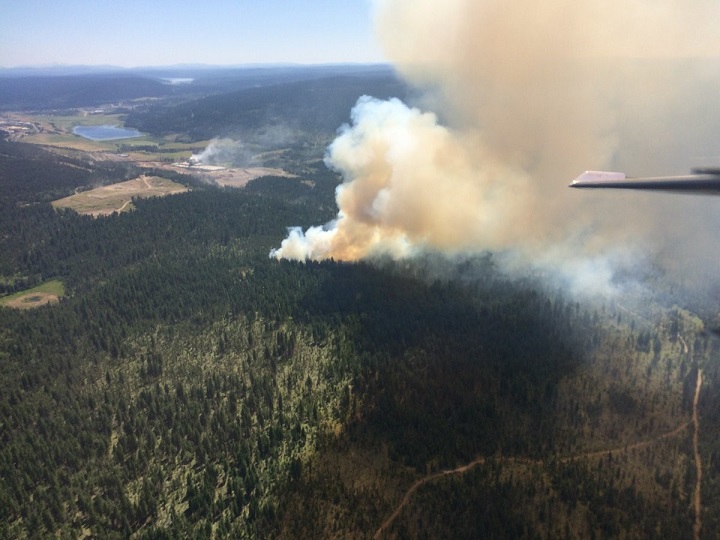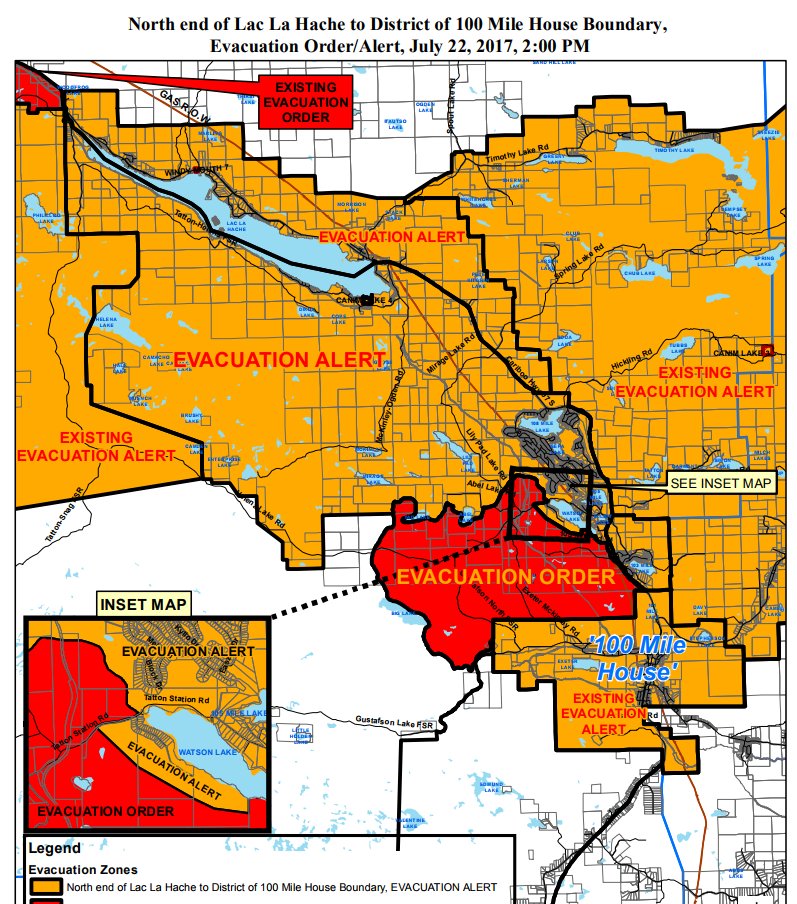More than two weeks after it was issued, the evacuation order for a large part of 100-Mile House has been lifted.

The Cariboo Regional District says the order has been partially downgraded to an alert from the north end of Lac La Hache to the boundary of the District of 100-Mile House.
While the announcement marks a green light for the almost 10,000 affected to return home, the District warns that people living in the area will remain on evacuation alert.
Kim Hayhurst with the Cariboo Regional District says they’re asking those residents to remain at the ready in case conditions change once more.
“The weather is a major impact on this, so they may end up having to evacuate once again. So while this is great news today, that doesn’t mean that it’s home for good for the rest of the summer.”
While 2,000 of those people live within 100 Mile House itself, the other 8,000 of them are residents of the surrounding areas.
- Narcan raccoons, dirty diapers and stuffed animals: 12 of B.C.’s weirdest stories this year
- Holborn Properties denies it let Dunsmuir House fall apart to force demolition
- B.C. family faces 3-year respite funding wait to care for son with rare brain cancer
- Port Moody extinguishing 111-year-old volunteer firefighter program
100-Mile House is the second municipality to have its state of emergency downgraded, after an evacuation order in the town of Princeton was lifted early Saturday morning.

Get daily National news
However, evacuation orders still remain in effect for the nearby community of Williams Lake, which contains some of the largest wildfires still raging.
The long summer ahead
While there has been significant progress today in the fight against the wildfires ravaging B.C.’s interior, Fire Information Officer Navi Saini says the province isn’t out of the woods quite yet.
There are currently 161 fires burning across the province, down from 167 as of the last update, but Saini says less-than-ideal weather may increase the risk to B.C. once again.
A stretch of rainy weather helped efforts from crews across the province, but it seems that help won’t last, as the forecast looks to be decidedly warmer and drier over the next few days.
“We did see some rainfall this week on Thursday, but a lot of the larger fires we are dealing with in the Cariboo saw very little or even no rainfall,” Saini says. “And there are some pockets of high activity still, so the winds could lead to increased behaviour on those.”
In preparation, Saini says crews are mopping up various fires across the province before that weather can make them worse.
Those include the Princeton fire, which is now 100 per cent contained, and the Gustafson fire near 100 Mile House, which is 90 per cent contained.
However the same can’t be said for several fires in the Williams Lake area, which remain out of control.
The massive Hanceville wildfire, in particular, now burns at 132,000 hectares, with little to no headway having been made in containing it thus far.
Saini went on to say that weather wasn’t the only factor hampering efforts – with the rest of summer still to come, British Columbians need to be extra vigilant when it comes to fire prevention.
“We’ve had a large number of fires with direct human impact… the number one indicator of what the rest of fire season looks like will depend on the weather, but of course keeping the number of human-caused fires down is also critical.”
Officials also say another thousand British Columbians have registered as evacuees, bringing the running total to around 44,000, though that number is slated to drop as residents 100 Mile House return.
They say those individuals won’t be allowed back home until the fire risk is “sufficiently reduced.”







_848x480_1397405763961.jpg?h=360&w=540&crop=1&quality=70&strip=all)


Comments